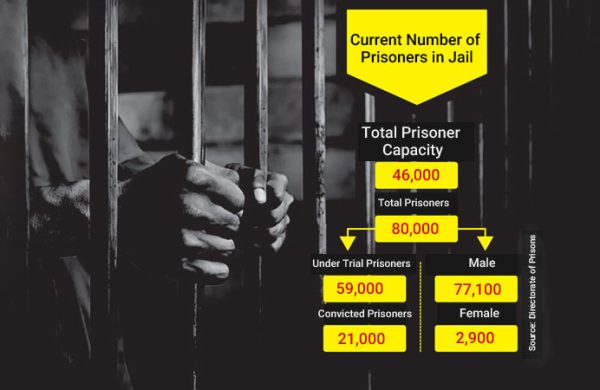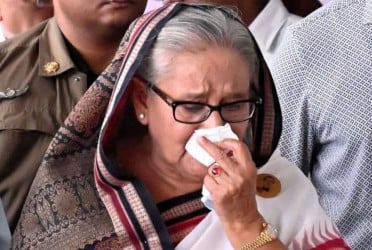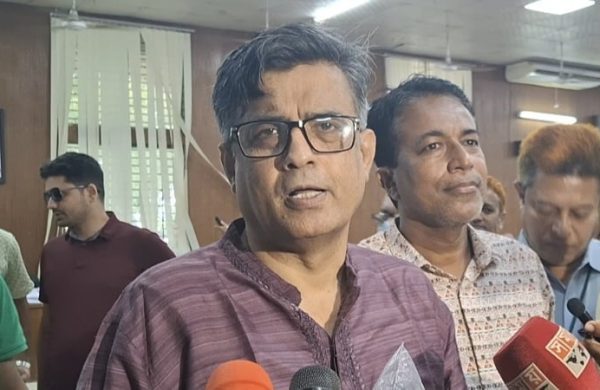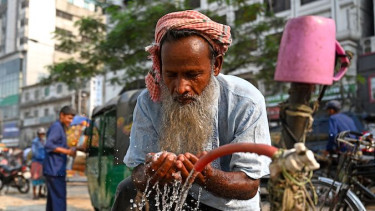68 prisons holding twice than intended capacity
- Update Time : Thursday, October 30, 2025

Staff Correspondent:
The country’s 68 prisons are now holding nearly twice their intended capacity of inmates. According to the Prisons Directorate, the combined capacity of all prisons in Bangladesh is around 46,000. As of last Monday, October 27, the total prison population stood at nearly 80,000. Among them, 73.75 percent have not yet been tried, and in many cases, formal judicial proceedings have not even begun.
Experts say the overcrowding makes it impossible for the prison authorities to ensure a healthy environment, putting many inmates at long-term health risk. They also note that due to prolonged trial delays, a large number of detainees remain idle behind bars, unable to contribute to the country’s economy.
Official data show that out of the 80,000 inmates, around 59,000 are under trial, while nearly 21,000 are convicted prisoners serving their sentences. In December 2024, the number of inmates under trial was 55,000, accounting for 73.3 percent of the total prison population. In 2023, there were 57,070 under-trial prisoners, or 74 percent of all inmates.
Those awaiting trial are kept in detention. Initially, they are placed in admission wards and later moved to other sections of the prison. Until their trials are completed, they are not allowed to participate in any work inside the prison. In contrast, convicted prisoners can take part in income-generating activities and send part of their earnings to their families.
Experts explain that, upon conviction, detainees are classified as prisoners serving a sentence. If found not guilty, they are released. However, even those proven innocent face significant challenges reintegrating into society. In the country’s social context, anyone who has once been to prison is often branded as a criminal or a stigmatized individual. As a result, both the person and their family suffer social marginalization.
Experts stress that the judicial process for detainees must be completed as quickly as possible. If found guilty, their sentences should be carried out without delay. At the same time, the state must ensure that families of convicted prisoners do not face harassment because of their incarceration.
The slow pace of judicial proceedings is affecting prisons across the country, said Dr. Tawohidul Haque, associate professor at the Institute of Social Welfare and Research at the University of Dhaka (DU) and a criminology expert. Speaking to journalists, he said, “A large portion of detainees in our country’s prisons are under trial. For many of them, formal proceedings have not even begun. The number of inmates far exceeds the official capacity of the prisons. The basic rights that prisoners are entitled to are being overlooked because of overcrowding. The multiple stages required to complete investigations and judicial processes are being delayed, and this delay is having a direct impact on the prisons.”
He added, “When the prison authorities cannot even ensure enough space for inmates to live, it is only natural that they will struggle to protect other rights as well. The culture of prolonged trials that has developed in our country must end. Justice must be ensured within a specific timeframe, following due process. Justice cannot be achieved in society by keeping people imprisoned indefinitely. The judicial process must be completed quickly so that offenders receive their due punishment, and at the same time, the victims’ safety must be ensured. For that, a meaningful relationship must be established between the judiciary and the prison authorities.”
World Prison Brief (WPB), an international online database containing global prison statistics, published a survey in 2023 citing data from the Ministry of Home Affairs. According to the survey, in 1999, there were 44,368 under-trial prisoners in Bangladesh, accounting for 74.6 percent of the total prison population. By that estimate, 34 out of every 100,000 people were detained at the time awaiting trial. The number of under-trial prisoners stood at 45,173 back in 2003, or 67.1 percent of the total inmates. The figure rose to 48,354 in 2006, making up 67.1 percent of all prisoners, with 33 out of every 100,000 individuals awaiting trial. In 2010, the number reached 50,576, or 73.2 percent of total inmates. And by 2015, it increased further to 52,876, accounting for 73.8 percent of all prisoners. That year, 33 people out of every 100,000 were kept in prison without conviction. The same study said that the number of prisoners awaiting trial climbed to 61,367 back in 2022, representing 75.6 percent of the total prison population. That year, 35 out of every 100,000 people in Bangladesh were being held in prison while awaiting trial.
Experts believe that many inmates in Bangladesh’s prisons lack the means to access legal assistance. They are forced to spend long periods behind bars. They say such prisoners must be identified and provided with necessary legal aid. Authorities should also regularly verify whether anyone is being held without valid reasons. However, above all, experts stress the need to make the judicial process simpler and more accessible.
Nur Khan Liton, a human rights activist and member of the Commission of Inquiry on Enforced Disappearances, said overcrowding in prisons makes it impossible to uphold human rights. He told journalists, “It is the responsibility of the prison authorities to take care of inmates. They are obligated by law to ensure proper housing and a healthy environment for every prisoner. But when the number of inmates exceeds capacity, it is only natural that they are deprived of their due rights and facilities. This is a violation of human rights. We must come out of this situation and ensure that every inmate receives the rights they are entitled to.”
Assistant Inspector General (AIG) of Prisons, Md Jannat Ul Forhad, however, said that despite overcrowding, inmates are receiving all necessary facilities. Speaking to journalists, he said, “At present, prisons across the country hold around 80,000 inmates against a capacity of 46,000. Even with the excess number, there is no shortage in housing, food, or healthcare. All facilities prescribed by law for inmates are being ensured.”













